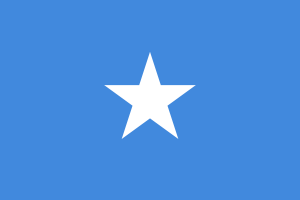Difference between revisions of "Language/Somali/Grammar/How-to-Use-Be"
m (Quick edit) |
m (Quick edit) |
||
| Line 80: | Line 80: | ||
|description=In this lesson, we will learn how to use the verb "be" in Somali. We will look at the different forms of the verb and how to use them in sentences. We will also look at some examples of sentences using the verb "be". | |description=In this lesson, we will learn how to use the verb "be" in Somali. We will look at the different forms of the verb and how to use them in sentences. We will also look at some examples of sentences using the verb "be". | ||
}} | }} | ||
==Related Lessons== | |||
* [[Language/Somali/Grammar/Prepositions|Prepositions]] | |||
* [[Language/Somali/Grammar/Nouns|Nouns]] | |||
* [[Language/Somali/Grammar/Future-Tense|Future Tense]] | |||
* [[Language/Somali/Grammar/Possession|Possession]] | |||
* [[Language/Somali/Grammar/Pronouns|Pronouns]] | |||
* [[Language/Somali/Grammar/Time|Time]] | |||
* [[Language/Somali/Grammar/Adjectives|Adjectives]] | |||
* [[Language/Somali/Grammar/Give-your-Opinion|Give your Opinion]] | |||
* [[Language/Somali/Grammar/Negation|Negation]] | |||
{{Somali-Page-Bottom}} | {{Somali-Page-Bottom}} | ||
Revision as of 23:57, 28 February 2023
Hi Somali learners! 😊
In this lesson, we will learn how to use the verb "be" in Somali. We will look at the different forms of the verb and how to use them in sentences. We will also look at some examples of sentences using the verb "be".
The verb "be" is used to describe a state or condition. In Somali, it is conjugated differently depending on the subject of the sentence. The verb "be" is conjugated as follows:
| Subject | Pronunciation | English Translation |
|---|---|---|
| Aniga | ah-nee-gah | I am |
| Adiga | ah-dee-gah | You are |
| Isaga | ee-sah-gah | He is |
| Iyada | ee-yah-dah | She is |
| Waa | wah | It is |
| Annaga | ah-nah-gah | We are |
| Idinka | ee-deen-kah | You (plural) are |
| Iyaga | ee-yah-gah | They are |
Let's look at some examples of sentences using the verb "be":
- Person 1: Anigu waan qof (ah-nee-goo wahn kof) (I am a person).
- Person 2: Adigu ma qof baa? (ah-dee-goo mah kof bah?) (Are you a person?).
- Person 1: Haa, anigu waan qof (hah, ah-nee-goo wahn kof) (Yes, I am a person).
- Person 2: Isagu ma qof baa? (ee-sah-goo mah kof bah?) (Is he a person?).
- Person 1: Haa, isagu waa qof (hah, ee-sah-goo wah kof) (Yes, he is a person).
- Person 2: Iyadu ma qof baa? (ee-yah-doo mah kof bah?) (Is she a person?).
- Person 1: Haa, iyadu waa qof (hah, ee-yah-doo wah kof) (Yes, she is a person).
The verb "be" can also be used to describe a location. In Somali, it is conjugated differently depending on the subject of the sentence. The verb "be" is conjugated as follows:
| Subject | Pronunciation | English Translation |
|---|---|---|
| Aniga | ah-nee-gah | I am |
| Adiga | ah-dee-gah | You are |
| Isaga | ee-sah-gah | He is |
| Iyada | ee-yah-dah | She is |
| Waa | wah | It is |
| Annaga | ah-nah-gah | We are |
| Idinka | ee-deen-kah | You (plural) are |
| Iyaga | ee-yah-gah | They are |
Let's look at some examples of sentences using the verb "be" to describe a location:
- Person 1: Anigu halkan baan joogaa (ah-nee-goo hahl-kahn bahn joh-gah) (I am here).
- Person 2: Adigu meeshaad joogtaa? (ah-dee-goo meh-shahd johgt-tah?) (Where are you?).
- Person 1: Halkan baan joogaa (hahl-kahn bahn joh-gah) (I am here).
- Person 2: Isagu meeshaad joogtaa? (ee-sah-goo meh-shahd johgt-tah?) (Where is he?).
- Person 1: Isagu halkan buu joogaa (ee-sah-goo hahl-kahn boo joh-gah) (He is here).
- Person 2: Iyadu meeshaad joogtaa? (ee-yah-doo meh-shahd johgt-tah?) (Where is she?).
- Person 1: Iyadu halkan bay joogtaa (ee-yah-doo hahl-kahn bay johgt-tah) (She is here).
To improve your Somali Grammar, you can also use the Polyglot Club website. Find native speakers and ask them any questions!
➡ If you have any questions, please ask them in the comments section below.
➡ Feel free to edit this wiki page if you think it can be improved. 😎
Related Lessons
